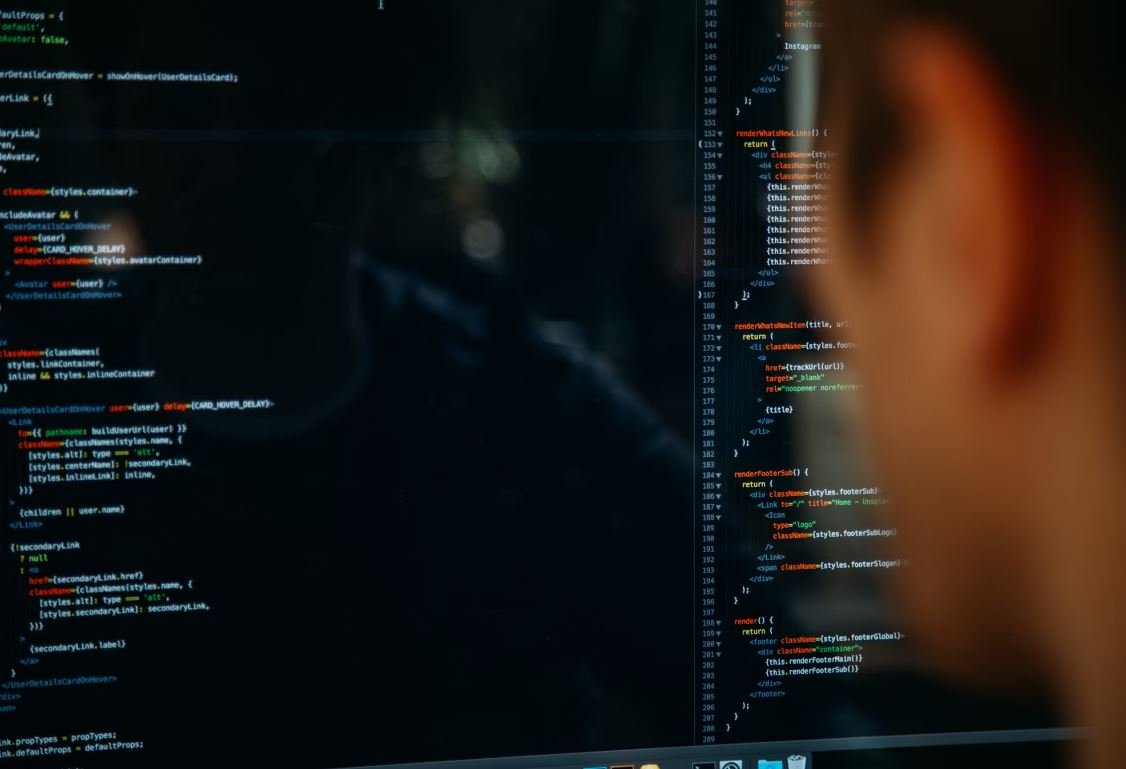Neural Networks Course: A Comprehensive Guide
Are you interested in diving into the exciting world of neural networks? Whether you’re a beginner or an experienced professional looking to expand your knowledge, taking a neural networks course can be a great way to enhance your skills. In this article, we will explore a free neural networks course that provides valuable insights and resources for anyone interested in this field.
Key Takeaways
- Free neural networks course available for beginners and professionals alike.
- Covers various concepts and techniques related to neural networks.
- Provides practical examples and hands-on exercises to reinforce learning.
- Includes interactive elements and quizzes to test your understanding.
- Offers certificates of completion to showcase your new skills.
**One fascinating area in neural networks isdeep learning—a subset of machine learning that involves training deep artificial neural networks on large datasets.** This neural networks course starts by introducing you to the fundamentals of neural networks and gradually delves into more advanced topics.
**During the course, you’ll exploresupervised and unsupervised learning algorithms, learn aboutactivation functions anderror optimization techniques, and understand how totrain neural networks effectively.** The curriculum also coversconvolutional neural networks (CNNs) and their applications in computer vision tasks, as well asrecurrent neural networks (RNNs) for sequence learning and natural language processing.
Course Outline
- Introduction to Neural Networks: Understanding the basic concepts and architecture.
- Deep Learning: Exploring the intricacies of deep neural networks and their applications.
- Training Neural Networks: Learning various techniques to train neural networks effectively.
- Convolutional Neural Networks: Applying CNNs to image classification and object detection.
- Recurrent Neural Networks: Understanding RNNs and their role in natural language processing.
Course Schedule
| Week | Topic |
|---|---|
| 1 | Introduction to Neural Networks |
| 2 | Deep Learning |
| 3 | Training Neural Networks |
| 4 | Convolutional Neural Networks |
| 5 | Recurrent Neural Networks |
**One interesting feature of this course is that it offers interactive elements** such as coding exercises and quizzes that allow you to apply the concepts you have learned in a practical manner. This hands-on approach reinforces your understanding of the material and enhances your learning experience.
If you successfully complete the course, you will receive a certificate of completion, which can be a valuable addition to your portfolio or resume, showcasing your newly acquired skills in neural networks.
Is this course right for you?
If you are intrigued by the power and potential of neural networks, this free course is an excellent opportunity to dive deep into this field. Whether you are a student, a professional, or simply an enthusiast, this course can provide you with valuable knowledge and practical skills to succeed in the exciting world of neural networks.
Don’t miss out on this incredible opportunity to expand your expertise in neural networks. Start the course today and unlock the unlimited possibilities that come with understanding the inner workings of artificial neural networks!

Common Misconceptions
One common misconception people have about neural networks courses being free is that the quality may be compromised. Some believe that since the course is offered for free, it may not be as comprehensive or detailed as a paid course. However, this is not necessarily true as there are many reputable institutions and online platforms that offer high-quality free neural networks courses.
- Free courses can be equally comprehensive and detailed as paid courses
- Reputable platforms may offer free courses to promote their brand
- Course quality should be evaluated based on reviews and instructor credibility, rather than payment structure
Another common misconception is that free neural networks courses lack practical application. Some assume that paid courses provide hands-on experience and real-world projects, while free courses only offer theoretical knowledge. However, many free neural networks courses emphasize practical implementation and include coding exercises and projects to enhance learning.
- Free courses can provide practical application through coding exercises and projects
- Hands-on experience can be gained through free courses with real-world examples
- Course structure and curriculum play a more significant role in practicality than the payment model
Some individuals believe that free neural networks courses lack support and interaction with instructors. They assume that paid courses offer personalized guidance and mentorship, while free courses lack such facilitation. However, many free neural networks courses provide forums, discussion boards, and even live chat support for learners to interact with instructors and seek help.
- Free courses can offer support through online forums and discussion boards
- Live chat support may be available for learners seeking clarification
- Interaction with instructors can still take place through free courses, although it may differ from the paid course format
There is a misconception that free neural networks courses do not provide certification or credentials to showcase completion. Some individuals believe that without a paid course, they will not receive any proof of their learning and it may not hold as much value. However, many free neural networks courses provide certificates of completion or badges that learners can use to showcase their newfound knowledge and skills.
- Certificates of completion can be granted for free neural networks courses
- Badges can be earned to showcase expertise and completion
- The value of certification lies in the skills acquired rather than the mode of delivery
Lastly, there is a misconception that free neural networks courses have limited resources and materials. Some assume that paid courses have exclusive access to additional materials and resources that are not available in free courses. Although this may be true in some cases, there are free neural networks courses that provide extensive materials, eBooks, and research papers for learners to access and further expand their knowledge.
- Free courses can provide extensive resources and materials
- eBooks and research papers may be available through free neural networks courses
- Additional resources can be found outside the course through independent research

Online Learning Platforms
Table showcasing the top online learning platforms for the study of neural networks.
| Platform | Rating | Cost |
|---|---|---|
| Coursera | 4.8/5 | $49/month |
| Udemy | 4.6/5 | $9.99 – $199.99 |
| edX | 4.7/5 | Variable |
| DataCamp | 4.5/5 | $25/month |
Neural Network Frameworks
A comparison of popular frameworks used for developing neural networks.
| Framework | Popularity | Programming Language |
|---|---|---|
| TensorFlow | High | Python |
| PyTorch | High | Python |
| Keras | Moderate | Python |
| Caffe | Moderate | C++ |
Applications of Neural Networks
Different industries benefiting from the implementation of neural networks.
| Industry | Application |
|---|---|
| Finance | Stock market prediction |
| Healthcare | Disease diagnosis |
| Autonomous Vehicles | Object recognition |
| Retail | Customer behavior analysis |
Top Neural Network Researchers
A selection of influential researchers in the field of neural networks.
| Researcher | Affiliation |
|---|---|
| Geoffrey Hinton | University of Toronto |
| Yann LeCun | New York University |
| Andrew Ng | Stanford University |
| Fei-Fei Li | Stanford University |
Neural Network Architectures
A comparison of different neural network architectures.
| Architecture | Advantages | Use Cases |
|---|---|---|
| Convolutional Neural Networks (CNN) | Image processing | Computer vision |
| Recurrent Neural Networks (RNN) | Sequential data analysis | Natural language processing |
| Generative Adversarial Networks (GAN) | Data generation | Image synthesis |
| Long Short-Term Memory (LSTM) | Handling long-term dependencies | Speech recognition |
Neural Network Training Techniques
Different techniques used to train neural networks effectively.
| Technique | Description |
|---|---|
| Backpropagation | Calculates the gradient for adjusting weights |
| Dropout | Reduces overfitting by randomly disabling neurons |
| Batch Normalization | Normalizes the inputs of a layer to prevent gradient explosion |
| Transfer Learning | Uses knowledge from one network in training another |
Neural Network Performance Metrics
Metrics used to evaluate the performance of neural networks.
| Metric | Purpose |
|---|---|
| Accuracy | Evaluates the overall correctness of predictions |
| Precision | Measures the fraction of true positives among positive predictions |
| Recall | Measures the fraction of true positives among actual positives |
| F1 Score | Combines precision and recall into a single metric |
Neural Network Preprocessing Techniques
Common techniques used to preprocess data before training neural networks.
| Technique | Description |
|---|---|
| Normalization | Scales data to have zero mean and unit variance |
| One-Hot Encoding | Converts categorical variables into binary features |
| Feature Scaling | Rescales input features to the same range |
| Data Augmentation | Increases the size of the training set through modifications |
Hardware for Neural Network Training
A comparison of hardware options for training neural networks.
| Hardware | Processing Power | Cost (approximate) |
|---|---|---|
| CPU | Medium | $300 – $1000 |
| GPU | High | $500 – $2000 |
| TPU | Very High | $1000 – $5000 |
| Cloud Services | Variable | Usage-based pricing |
Conclusion
In the field of neural networks, online learning platforms provide accessible education resources. Various frameworks enable developers to create powerful neural network models with ease. Neural networks find applications in finance, healthcare, autonomous vehicles, and retail. Notable researchers in the field inspire further advancements. Different architectures, training techniques, performance metrics, preprocessing techniques, and hardware options offer diverse choices depending on specific requirements. Overall, the study of neural networks offers a fascinating range of topics to explore and a promising future in various industries.
Frequently Asked Questions
What is a neural network?
A neural network is a computational model inspired by the biological neural networks found in the human brain. It consists of interconnected artificial neurons that process and transmit information.
What are the applications of neural networks?
Neural networks have a wide range of applications, including image and speech recognition, natural language processing, medical diagnosis, self-driving cars, and finance, among others.
Are neural networks difficult to learn?
Neural networks can be complex, but with proper guidance and practice, anyone can learn and understand the fundamental concepts behind them.
Do I need programming experience to learn about neural networks?
While programming experience can be beneficial, it is not necessarily a requirement to get started with neural networks. Many introductory courses provide step-by-step tutorials and resources to help beginners learn the principles and implementation.
Can I apply neural networks to my own projects after completing a course?
Yes, completing a neural networks course can equip you with the necessary knowledge and skills to apply neural networks to your own projects. It is a valuable skillset in the field of artificial intelligence and machine learning.
Is there any prerequisite knowledge required to take a neural networks course?
Understanding the basics of linear algebra and calculus can be helpful when learning about neural networks. However, some introductory courses assume no prior knowledge and provide necessary explanations and examples.
Are there any free neural networks courses available?
Yes, there are several online platforms and educational websites that offer free neural networks courses. They often provide video lectures, assignments, and quizzes to facilitate learning.
Can I enroll in a neural networks course if I am not a student or affiliated with any institution?
Absolutely! Many neural networks courses are open to anyone interested in learning. They are often self-paced, allowing individuals from diverse backgrounds and experiences to participate and acquire new skills.
Are neural networks the same as deep learning?
No, while deep learning is a subset of machine learning, neural networks are the underlying architecture used in deep learning algorithms. Deep learning involves training hierarchical layers of neural networks to automatically learn complex patterns.
Can I get a certificate after completing a neural networks course?
Many online platforms and educational institutions offer certificates of completion for neural networks courses. However, the availability of certificates may vary, so it is advisable to check the course details before enrolling.




